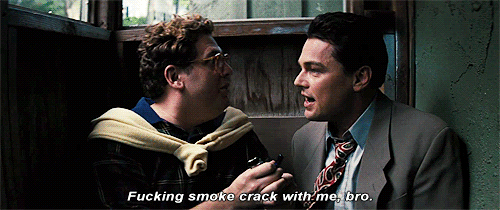The hardest challenge about becoming a manager
Note: this post is full of pseudo-psychology and highly speculative content. Like most fun stuff!
I became a manager back in 2009. Being a developer is fun. You have this very tangible way to measure yourself. Did I deploy something today? How much code did I write today? Did I solve some really cool machine learning problem on paper?
But as 1:1’s and emails and architecture discussions started filling up my day I often walked home with this gnawing feeling of having accomplished nothing. I saw my team build and deploy some really cool stuff, but I had this sort of guilt as if I was pretty useless.
To feel better about myself, I started coding more. But I noticed when I started coding it was like smoking crack. I couldn’t stop doing it. I would come in at 9am thinking about some fun problem, then get completely sucked into it. I would find myself at 9pm drinking Red Bull deep in some highly optimized C++ latent factor model. That felt great until I realized I had missed a bunch of 1:1’s and had 43 unread emails in my inbox.

I think what happens in your brain is you create all these proxies for accomplishments that take years to retrain. I would be incredibly costly if every action was judged in terms of its benefits amortized over your entire life time. Instead, we humans have an ability to invent pretty arbitrary proxies, such as getting high scores on exams, or in my case, write shitloads of code.
Proxies are great because they let you make decisions much quicker. If I have decided that it’s good for me to write code, then I will start doing it, and eventually feel great about it. After a few years of doing something very consciously (programming is good because I can build this cool game and show it to my friends) you build up this great rewards system (kind of like Pavlov’s dogs?) that makes you feel good about it in itself (programming is cool because I feel good when I do it).
The problem is when your ultimate goal changes and your old proxies are still in effect. You rational side might tell you: hey, look at you, you’re team is really happy, they are learning new stuff, and delivering lots of stuff. But still, you have this really weird feeling that you are not getting anything useful done.
This took me literally years to retrain. I remember at some point I saw someone in my team that did something unexpectedly impressive and I got really excited. I got excited because I realized this person had grown tremendously since joining, and presumably some small fraction of it was due to me. With enough exposure finally this starts to be the new proxy for delivering value. Something the irrational side immediately detects and makes you feel a sense of accomplishment about.
Anyway… once an addict, always an addict. I still have relapses and fall back into programming sometimes. In general I’ve noticed it’s extremely hard to balance and try to do 50-50 development and management. Basically one of the sides take over until it’s 90-10. Either you start coding and you fall back to your old crack habits. Or you manage to break out of it, and you go into this opposite mode where you just don’t have the energy to go into the zone.
I don’t know what my conclusion is. Programmers are the most irrational people I know and I think they are really driven by more of a irrational, System 1 kind of thinking, the pattern matching brain. That’s why I think so many super smart people get stuck in habits (I really want to just solve super cool graph algorithm problems!). The most powerful way to make progress is to put your rational System 2 on and constantly remind the other side what’s really making impact and what’s really long term beneficial. It takes a few year, but with enough persistence, your rational self can really train the primitive pattern matching brain to feel a sense of accomplishment in doing almost anything.
Sorry for offending anyone with my drug references!
Tagged with: management